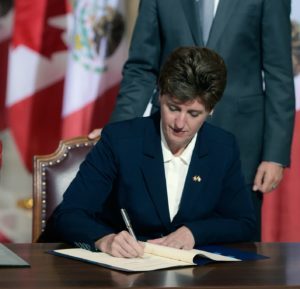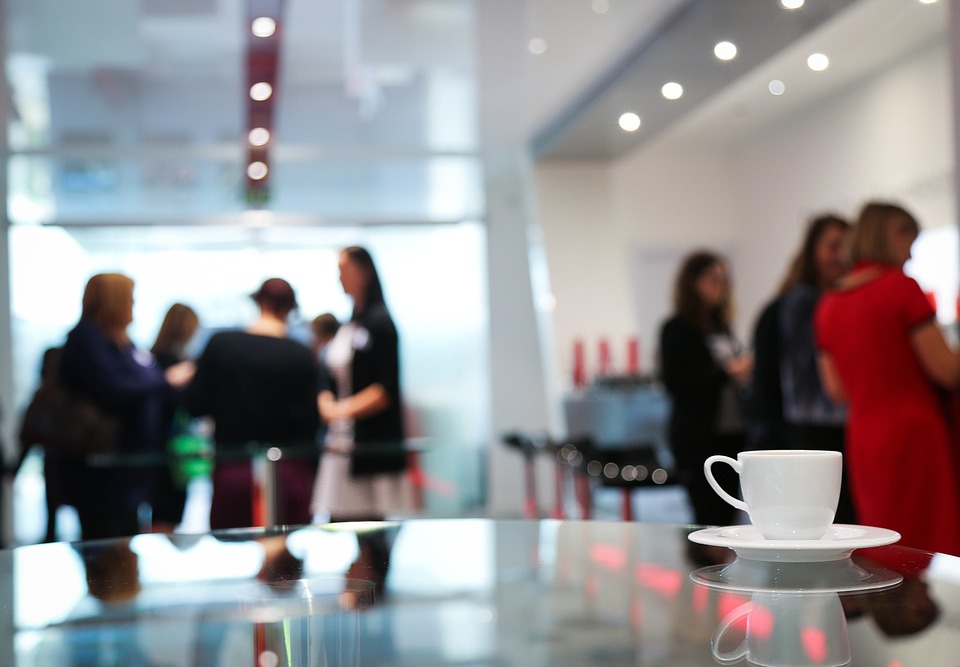Since launching in 2014, Sweden’s radically ‘feminist’ foreign policy has gained international notoriety. While critics have lambasted the Nordic nation – for brazenly funding abortion, inciting a diplomatic row with Saudi Arabia over human rights, and provoking Israel by recognising Palestine – the strategy has proved successful by many measures. Sweden, through its new policy, has helped more than 20 countries draw up laws and proposals to strengthen gender equality.
The strategy was ushered in by Minister for Foreign Affairs Margot Wallström, who took office promising the world’s first self-defined feminist foreign policy. The idea is that all of Sweden’s decision-making – from aid allocation to diplomacy – is informed by its vision for women’s empowerment. The approach is grounded in a wealth of research showing that the more equal a country is, the less likely it is to endure war, food insecurity or political and extremist violence. To Sweden, feminism is not just a means to an end – it’s critical to peace, security and development.

‘When we look at the world today, we have terrorism, the refugee crisis, protracted conflicts and systematic sexual and gender-based violence. That should show anyone that we cannot go on as we have – we have to work in a different way,’ said Ann Bernes, Sweden’s Ambassador for Gender Equality at the Ministry for Foreign Affairs. Bernes is the coordinator of Sweden’s feminist foreign policy.
‘We like to think of it as going from being reactive to proactive. When it comes to preventing these kinds of problems, you can’t be successful unless you apply a perspective where you look at whole populations and whole societies. If you don’t do that, you’re partially blind,’ said Bernes.
Historically, foreign policy has been – and largely continues to be – crafted by men. But as more women take on positions of political power, they bring feminist perspectives to government: most notably, that of inclusion and equality for all people, regardless of gender.
When it comes to geopolitical problems, Bernes is adamant women should be front of mind. The six-year Syria conflict, for example, has left women four times more vulnerable to child marriage. Gender-based violence, including rape, has become more prevalent during the conflict, and girls and women are left with little access to basic health care. Some 430,000 Syrian women are pregnant and in dire need of maternal care.
‘Many still think of gender equality as something you have to deal with later, as if it’s a separate issue. We see it this way: if you don’t have a feminist perspective, then you risk not seeing the whole picture. We see gender equality as being relevant in every facet and every aspect,’ said Bernes.
Critics have claimed that Sweden’s exportation of Western feminist ideals is simply a new brand of white saviour complex. Bernes insists that Sweden’s feminist policy is not a set of political beliefs or ideals – instead, she sees it as a tool, or method of analysis. It forces policymakers, development organisations and negotiators to ask questions like, ‘Are resources being allocated fairly? Are women denied basic human rights? Are they represented in the peace-making process?’
‘[The policy] doesn’t look the same in every country. It’s a perspective, and the perspective has to be applied to the reality in which you’re working. Our colleagues around the world work in different ways, because the problems – and the ways of gaining results – look different,’ said Bernes.
As part of its feminist foreign policy, Sweden has helped more than 90 communities abandon female genital mutilation and several countries set up women’s mediator networks. It has also helped hundreds of thousands of women get safe abortions, a program Sweden only plans to scale up in the wake of the Mexico City policy – President Trump’s recent ban on foreign aid for development organisations which provide the service.
‘Access to safe and legal abortion is key for gender equality and women’s empowerment, and the Mexico City policy [Trump’s ban] is in conflict with this,’ said Veronica Perzanowska, a Gender Advisor in Sida’s Africa Department. Sida is responsible for 50 per cent of Sweden’s international development budget, and 90 per cent of its programs have a gender equality angle as of 2016.
In July 2017, Sida announced plans to invest an additional $20.6 million in sexual and reproductive health (SRHR). (Some 60 per cent of Sida funding already goes to SRHR.) Perzanowska said Sida will review all current aid recipients, and the ones who comply with Trump’s ban may be refused further funding. ‘[We will] have a dialogue with them, and see if they are planning to comply. If they intend to do so, that might cause a problem for us. We think comprehensive sexual and reproductive health is necessary.’
‘We know from experience – and we know from what we think is right – that legal and safe abortion is totally key for women’s empowerment,’ said Bernes. ‘Political dialogue is very important, and we need to promote these issues. We know that if you increase the number of unsafe abortions, that risks so many lives.’
In the past, Sweden’s hard-line stance on liberal ideals has left it at odds with foreign powers. In 2015, Wallström pulled out of an arms deal with Saudi Arabia over its record on women’s rights and treatment of blogger Raef Badawi, who was sentenced to 1,000 lashes and 10 years in prison for insulting Islam.
The backlash was swift. Saudi Arabia withdrew its ambassador from Sweden, and stopped issuing visas to Swedish businesspeople. At home, Wallström faced a barrage of criticism – notably from a coalition of male-dominated businesses like Volvo, H&M, SEB Group and Dagens Industri, which stood to lose billions in the cancelled deal. Wallström refused to backtrack on her remarks. (However, Sweden – the world’s third largest arms exporter – continues to sell weapons to Saudi Arabia.)

Sweden’s policy has had an outsize influence on other world leaders. In June, Canada announced its newly feminist approach to foreign assistance: by 2021-2022, 95 per cent of the country’s aid will fund gender equality. This marks a sharp turn from the previous administration’s decade of conservative leadership, under which just 2 per cent of bilateral funding went to such programs.
‘With the Liberals in Canada, it’s a no-brainer. We’re behind gender equality and a feminist vision, and we want to take concrete action to make it happen,’ said Canada’s International Development Minister, Marie-Claude Bibeau, who ushered in the policy. ‘We consulted in 65 countries, including Sweden – it was really important to us to get feedback from developing countries, as well as learn from other donor countries and their experiences.’
Canada’s new policy will focus on fostering feminist principles within countries by funding programs aimed at eradicating child marriage, getting girls into school and curbing gender-based violence, among others. Sweden’s policy goes much further: it not only encourages the spread of feminism worldwide through foreign assistance, but applies it to every level of foreign policy, including international diplomacy – even if it lands the country in hot water.
‘We have said from the start that a feminist approach is to be applied to our whole foreign policy agenda,’ said Bernes. ‘We work nationally and internationally with a feminist perspective in our policy areas, and that is the difference between us and other countries.’
This piece originally appeared on Apolitical, the global network for public servants. You can find the original here.

